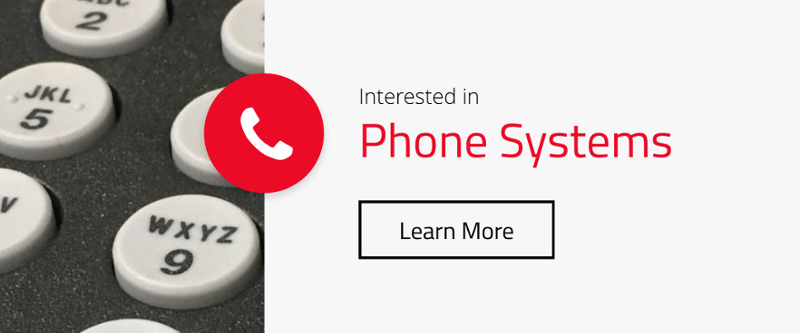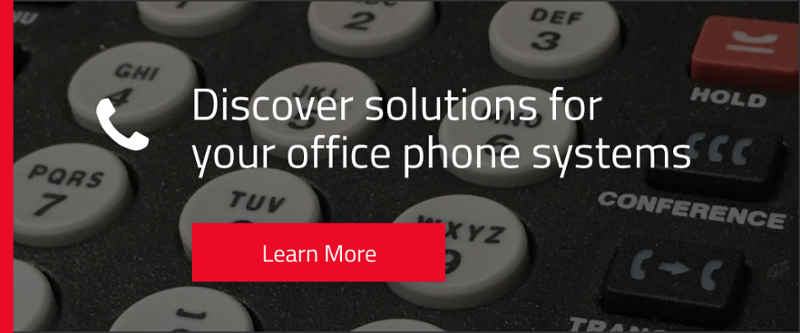
It’s just another day at the office— that is, until your phone rings.
You pick up, and it’s your bank. It appears your business credit card has two suspicious transactions, “Are you traveling, because your card shows two large, pending withdrawals made in California?” the caller asks.
You panic, “No! Someone must have stolen my card number.”
“Don’t worry,” the bankers reassures you, “just confirm some information for me, and we’ll lock your current card and issue you a new one.”
For a few seconds, you’re relieved. How nice of the bank to catch this before any real damage was done, you think! However, the real damage is about to be done when you hand over your private information to the clever scammer on the line.
Protect yourself from phone scams with the right knowledge of this sneaky practice.
What is Voice Phishing?
Voice Phishing, often shortened to “Vishing,” is a form of phone scam, where a fraudulent person pretends to be a trusted authority.
Often posing as someone from a bank or a representative for a service you currently use, these tricky phone scammers ask for personal information, with the end goal of depleting your bank account.

Why Do People Trust a Stranger on the Phone?
There’s a few reasons that individuals and businesses all across the country fall for voice phishing scams.
- Scammers can spoof recognizable phone numbers/names. Your phone might display a business name across the screen, even if it’s not the actual company. This “spoofing” is illegal, yet some clever callers sneak past the Federal Communications Commission (FCC). A vishing scammer may also be able to mimic an area code in your neighborhood to gain your trust.
- Scammers often do extensive research beforehand. Most phone phishing callers know a few things about you before you even answer the phone. This “spear phishing” technique often works, because it’s so highly personal. The caller may ask you to confirm an address they have on file or read off the last four digits of your card number, but ask for the CVV code or for your debit pin to confirm your identity. Many victims of these phone scams think that because the caller has this information already, they must be trustworthy. But in reality, the scammer purchased some data illegally or did some intense social media digging to appear legitimate.
- Scammers sound professional. Simply put, vishing scammers often speak very formally and courteously. This ability to sound knowledgeable and “business-like” often fools those on the other line, who are used to less strategic phone scammers.
- Scammers create a sense of urgency or fear. Oftentimes, scammers pose as someone from your bank who detected suspicious activity on your business account or as tech support to resolve an issue on your computer. They promise to immediately resolve your issue, if you provide them with necessary information. Sparked by fear, you hand over the personal data, but there was never any real issue!
It’s Not Just People Anymore, Watch Out for Clever “Robocalls”
With the evolution of technology, vishing scams are becoming increasingly intricate. Many calls are now partially or completely automated, so that you’re often interacting with a robot that sounds quite human— and is capable of responding just as naturally as a real person to a variety of questions.
These smart robots often transfer you to another “representative,” AKA a real person, if the queries become too complicated or go off script. A good way to check if it’s a bot is to ask a personal question of your own, such as “How’s the weather in Iowa?” If the voice asks you to repeat the question once or twice and then transfers you, you’ll know immediately that it’s a scam.
Protect Your Business from Vishing Scams
Here are some tips for avoiding telephone scams at the office:
- Don’t give away any banking information, addresses, etc. over the phone. Unless you recognize the voice on the other line, be cautious when asked for information via telephone— even if the number appears legit (remember, these digits can be spoofed!). Tell the representative you’ll need to call them back at another time, then look up the number to confirm its authenticity and contact the real source to confirm.
- Report a suspicious call. If your business received a fraudulent call, tell the Federal Trade Commission (FTC). With enough scam complaints, they can catch these scammers or have their number labeled as “Scam Likely” on your caller ID.
- Immediately take action if you shared information. If you realized too late that you gave away important data to a scammer, report the activity on IdentityTheft.gov.
- Heighten your security. Make sure your software is up-to-date on your computer and phone systems or set up call filters to block suspicious numbers. Back-up all data to avoid having it seized or subject to ransomware. Our team has a full system of precautionary measures for safeguarding against these cyber and phone scams!
Enhance Your Security with Access Systems
Voice phishing isn’t the only medium criminals use to steal your data or money. In fact, email scams are often more popular!
Read our other article, all about email threats and how to avoid them.
Then, give our team at Access Systems a call at (888) 464-8770 or fill out this form to enhance your businesses phone and computer security, today.

.png?quality=high&width=3192&height=1279&name=Copy%20of%20Untitled%20(63).png)


